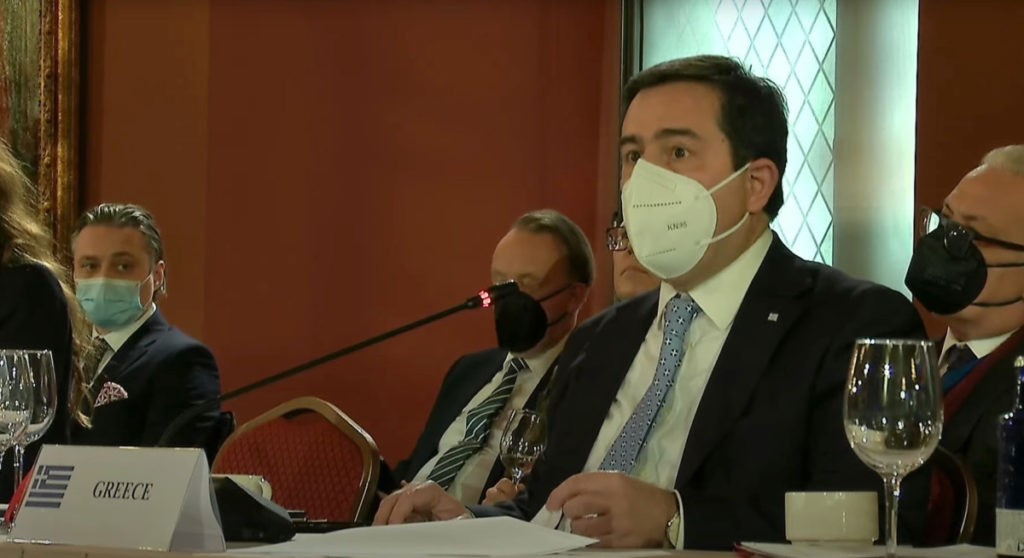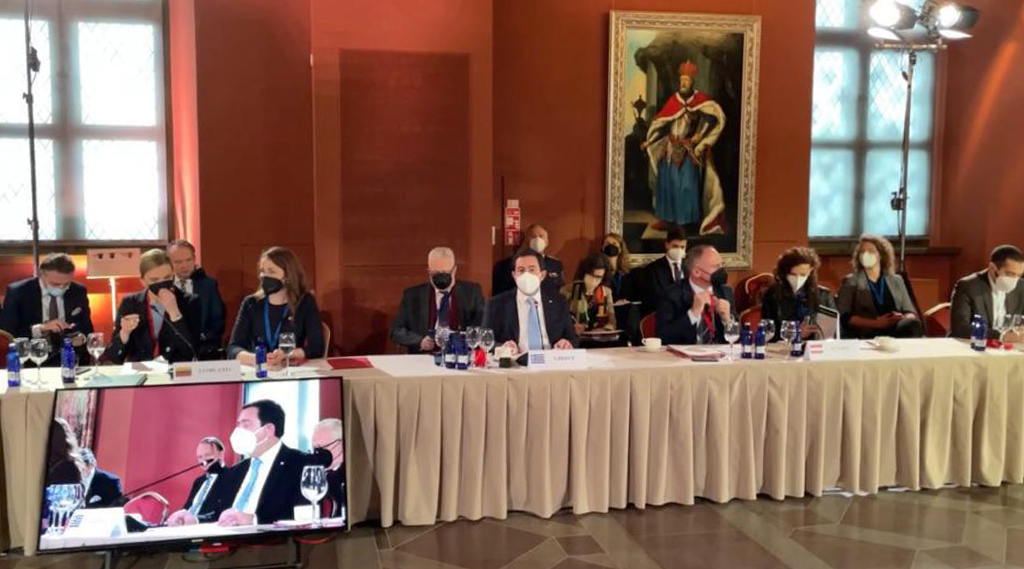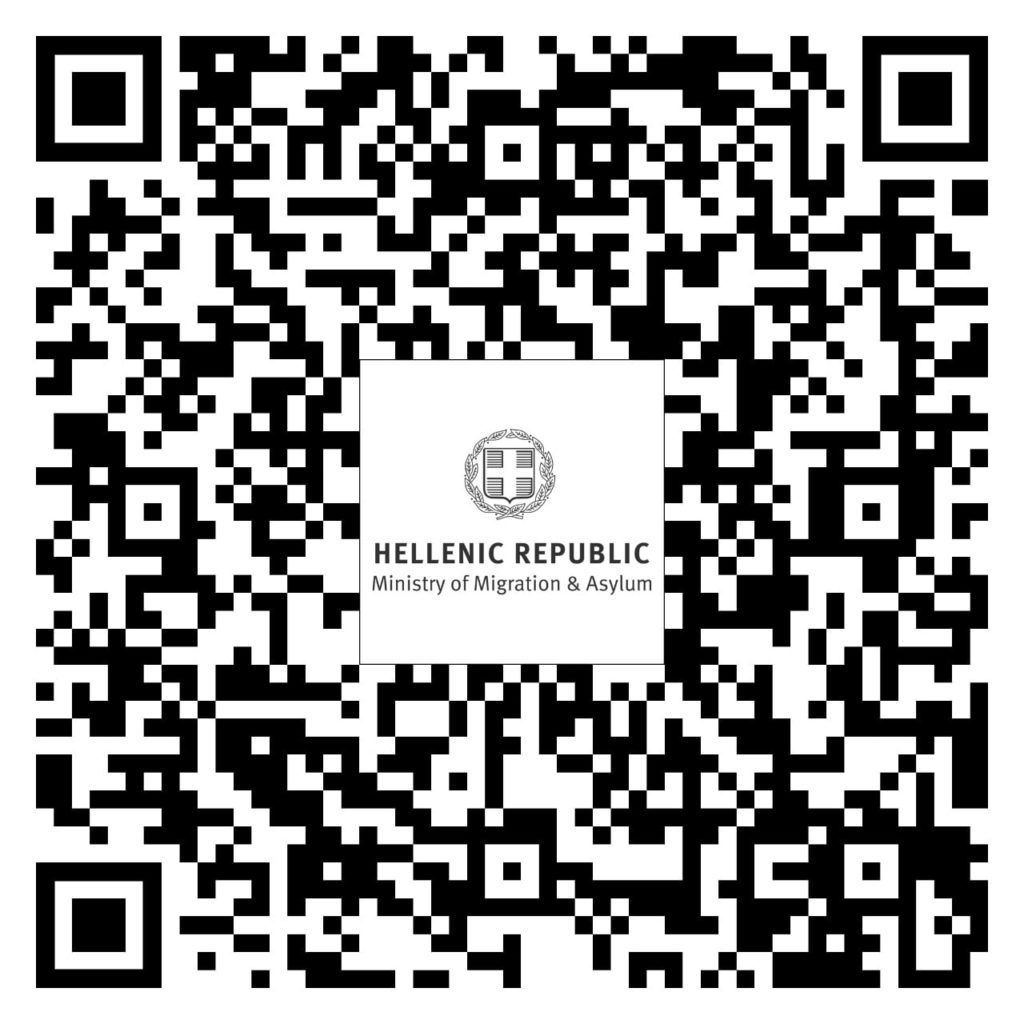Τhe European Conference on Border Protection held in Vilnius, Lithuania, chaired by the Lithuanian Minister of the Interior, Agnè Bilotaitè and the Minister of Μigration and Asylum, Notis Mitarachiwas completed today, in the presence of representatives of the European Commission, the European Parliament, European Border and Coast Guard Agency (Frontex), Europol, the European Union Agency for Asylum (EUAA) and the European Union Agency for Fundamental Rights (FRA).
The purpose of the Conference was to launch the necessary discussion between the EU Member States, the associated Schengen States and the European institutions (Commission, competent bodies) on the major issue of EU external protection against migratory flows and the need to prevent illegal entry.
After the end of the Conference, the Minister of Migration and Asylum, Mr Notis Mitarachi stated that‘’in order to become more resilient and prevent future migratory crises, like the ones that Greece faced for several years since 2015 and like what Lithuania and Poland have recently experienced member states must coordinate their actions and policies.’'.’’
Regarding the current debate on reforming the Schengen Borders Code, and the ongoing negotiation for a new Migration and Asylum Pact, as well as the concept of border protection, Mr Mitarachi pointed out that:in order to ensure early prevention of illegal arrivals in the EU, our firm position, which is also reflected in the Joint Statement that we have adopted today, is that border protection is the only sustainable way for any common European migration and asylum system to properly function.’’.
Subsequently, Mr Mitarachi emphasised that :‘’the EU has land and sea borders. These cannot be differentiated according to their nature or topography, but must be treated as an aspect of the exercise of sovereignty - Countries at the EU's external borders must be able to make use of the available technological tools both on land and at sea, including the creation of natural barriers where necessary, in order to prevent illegal arrivals. "’
‘’‘’the EU has land and sea borders. These cannot be differentiated according to their nature or topography, but must be treated as an aspect of the exercise of sovereignty - Countries at the EU's external borders must be able to make use of the available technological tools both on land and at sea, including the creation of natural barriers where necessary, in order to prevent illegal arrivals. " ‘‘The EU has land and sea borders. These cannot be differentiated according to their nature or topography, but must be treated as an aspect of the exercise of sovereignty'', concluded Mr. Mitarachi.
The Joint Declaration of the Conference on Border Protection was signed by a total of 16 participating Member States (Austria, Bulgaria, Denmark, Greece, Estonia, Ireland, Croatia, Cyprus, Latvia, Lithuania, Malta, Hungary, Poland, Romania, Romania, Slovakia, Slovenia).
Το κείμενο της Κοινής Δήλωσης
ΑΝΕΠΙΣΗΜΗ ΜΕΤΑΦΡΑΣΗ
We, the Representatives of Austria, Bulgaria, Croatia, Cyprus, Denmark, Estonia, Greece, Hungary, Ireland, Latvia, Lithuania, Malta, Poland, Romania, Slovakia and Slovenia, have met on 20-21 January 2022 on the occasion of the Conference on Border Management in Vilnius, and after extensive discussions on possibilities, tools and measures to scale up our efforts in tackling current challenges and preventing future crises, have found the common ground on the following:
- The security and integrity of the Schengen area must not be compromised. An area without internal border controls can only function efficiently if the external borders are protected properly. Determined efforts and additional resources are required for strengthening our resilience to present or future challenges.
- The EU has witnessed illegal migration being exploited as an instrument to exert political pressure. To preclude the possible political instrumentalisation of illegal migration by third parties, we have to reinforce our ability to act preventively and respond quickly, effectively and decisively, including through diplomatic action, united European approach and voice, as well as with effective border protection measures and horizontal sanctions, while respecting our international obligations.
- Protecting the external borders of the EU and the Schengen area is a shared responsibility. Border protection is of key importance for preventing illegal migration, migrant smuggling, trafficking in human beings and threats to security and public order, as well as for preserving internal stability and social cohesion. The developments at the EU’s external borders prove the need for a comprehensive package of measures to establish effective control based on integrated border management along the entire external border,including by establishing physical barriers and other mobile or stationary infrastructure, where Member States deem it appropriate and necessary, while respecting the international law. These measures should also apply at the Green Line in the case of Cyprus, although it does not constitute a border. Adequate EU financial support should contribute to implementation of these measures in order to ensure a high level of security at the EU external borders. Likewise, we should consider new and innovative solutions to address the challenges of preventing illegal migration and loss of life at sea borders, recognising the specificities of search and rescue operations.
- Border management should be given particular attention, with an emphasis on prevention of illegal border crossings and combating activities of smugglers and human traffickers. It must be based on modern technologies and state-of-the-art equipment. The new interoperable IT architecture which needs to be delivered by the end of 2023 will significantly contribute to effective management of our external borders. Notwithstanding the necessity to take into account the specific nature of and situation at different parts of the external border, border surveillance should be guided by common minimum standards in order to improve awareness of the situation and effective prevention of and swift responses to illegal border crossings.
- Member States that are at the external borders (including the case of Cyprus and the Green Line), as well as Member States under migratory pressure, should be supported and assisted adequately in order to be capable to protect the interest of the entire EU and ensure a high level of security for all Member States. EU agencies, primarily the Frontex, Europol and EUAA, should make full use of their mandates in this regard, addressing the needs identified upon the request of the affected Member State. Further possibilities for improvement in the areas of their activities could be explored. Moreover, in its conclusions from December 2021, the European Council has invited the Council and the Commission „to consider ways to strengthen cooperation arrangements to support Member States facing specific challenges at the EU’s external borders, including as regards border guards as well as aerial surveillance“.
- Measures for border surveillance and prevention of illegal border crossings should be further developed in the Schengen Borders Code and in the context of the ongoing work on a new Pact of Migration and Asylum, foreseeing sustainable solutions for the future. The cases of instrumentalisation of migration flows by third countries and parties, existence of significant secondary movements, misuses of the asylum systems and the lack of an enhanced coordinated approach to border control during crisis situations, have revealed gaps in existing legal framework and weaknesses in addressing joint challenges in a unified and principled way. We look forward to constructive discussions on the legislative proposals recently tabled by the European Commission, namely the amendments to the Schengen Borders Code, proposal for blacklisting transport operators involved in human smuggling and trafficking of people into the EU, as well as proposals addressing situations of instrumentalisation in the field of migration and asylum.
- Both our individual and common actions at external borders and in the field of return are of utmost importance. However, these measures alone are insufficient. We stress the importance to develop EU external action in line with the conclusions of the European Council of June, October and December 2021, aiming to counter illegal migration also through cooperation with countries of origin and transit. While countering challenges at the external borders of the EU, and underlining the responsibility of countries of origin and transit in equal partnerships, we need to strengthen support for countries of origin and countries along the migratory routes, to enhance their border management capabilities and to reinforce their necessary capacities to provide protection, dignified and safe reception conditions, as well as sustainable livelihood for refugees and host communities in their regions. We also need to support these countries in fighting against migrant smuggling and human trafficking, as well as in building effective readmission and reintegration systems.
- While working on the pressing challenges at the external borders (at the Green Line in the case of Cyprus), we should also strengthen the Common European Asylum System and step up work in order to reduce incentives for illegal migration, prevent the abuse of the asylum system, preclude “asylum shopping” and manipulation of human lives by any State actors or criminal networks, and pave the way for a sound and orderly system, where EU Member States have effective control over who enters and stays in the EU, while ensuring protection for those in genuine need of it. Moreover, strategic and targeted communication, timely awareness campaigns aimed at (potential) irregular migrants and providing information about the dangers of illegal migration should be fostered. Fighting against disinformation and working with social media platforms should form part of these efforts.
- Furthermore, the EU and its Member States need to possess and make use of all appropriate tools to fight irregular primary and secondary movements, security threats, criminal cross-border activities and hybrid threats. We should also use all available relevant incentives and leverages to ensure efficient return, readmission and reintegration, and refer to the existing obligation under international law to readmit own nationals.

In this context, we welcome the Presidency's intention to have a political discussion on border management and Schengen cooperation and its determination to reach a substantial and balanced compromise on the Pact on Migration and Asylum.


